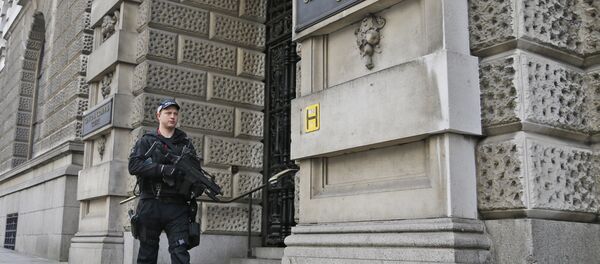MI5 warned then-cabinet secretary Robert Armstrong in 1986 that cabinet minister Peter Morrison had a "penchant for small boys" — but police were not informed, and no investigation was launched.
Giving evidence anonymously to the independent inquiry into child sexual abuse (IICSA), a security service lawyer apologised for the agency having taken a "narrow, security-related view" of the accusations against Morrison, stating the failure to pursue the matter was "a matter of deep regret". Morrison, former MP for Chester, died in 1995 — he was once arrested for ‘solicitation'.
The lawyer read out a letter from then-MI5 chief Antony Duff to Armstrong — Duff said stories about Morrison, then-minister of state for trade and industry, "persist" and two sources suggested he had a "penchant for small boys". One of the sources was Donald Stewart, Conservative party agent for Westminster.
"I would just as soon we didn't get involved for the time being," the missive concluded.
The inquiry was also told about MI5's investigation into Peter Hayman, former high commissioner to Canada. He kept detailed diaries about his sex life which were seized when his London flat was raided — the director of public prosecutions later granted MI5 access to them.
The security service subsequently interviewed Hayman and his friends, particularly about reports that in the 1950s when based in Baghdad local boys visited him for sexual purposes. The DPP, Hayman told MI5, had given him immunity from prosecution.
The MI5 lawyer also discussed other prominent individuals accused of paedophilia, among them former MI6 chief Maurice Oldfield, who allegedly told Thatcher he'd had "homosexual encounters" in the 1940s and 50s with "house boys" and "hotel stewards" in Asia.
Defence of the Realm
The revelations are just the latest indication the British state ignored, or actively covered up, cases of child sexual abuse perpetrated by members of the establishment. In October 2017, IICSA revealed MI5 suppressed allegations of paedophilic impropriety by Liberal MP Cyril Smith in the 1970s, as its remit was "to defend the realm".
Miranda Kennett, a former advertising executive, learned first-hand UK authorities were acutely aware of Smith's perverse inclintations.
"In the late 1980s, the agency at which I worked won the account for a new slimming product, HPD (High Protein Diet). The creative team came up with idea of approaching a prominent fat person to be featured in an ad campaign. Smith fitted the bill in terms of size and celebrity, and after being approached by agency representatives, he agreed to be involved — but, before the initial photo shoot could take place, the police got in touch and warned us not to use him in the campaign, as he was likely to be charged with indecent behaviour with young boys," Kennett told Sputnik.




